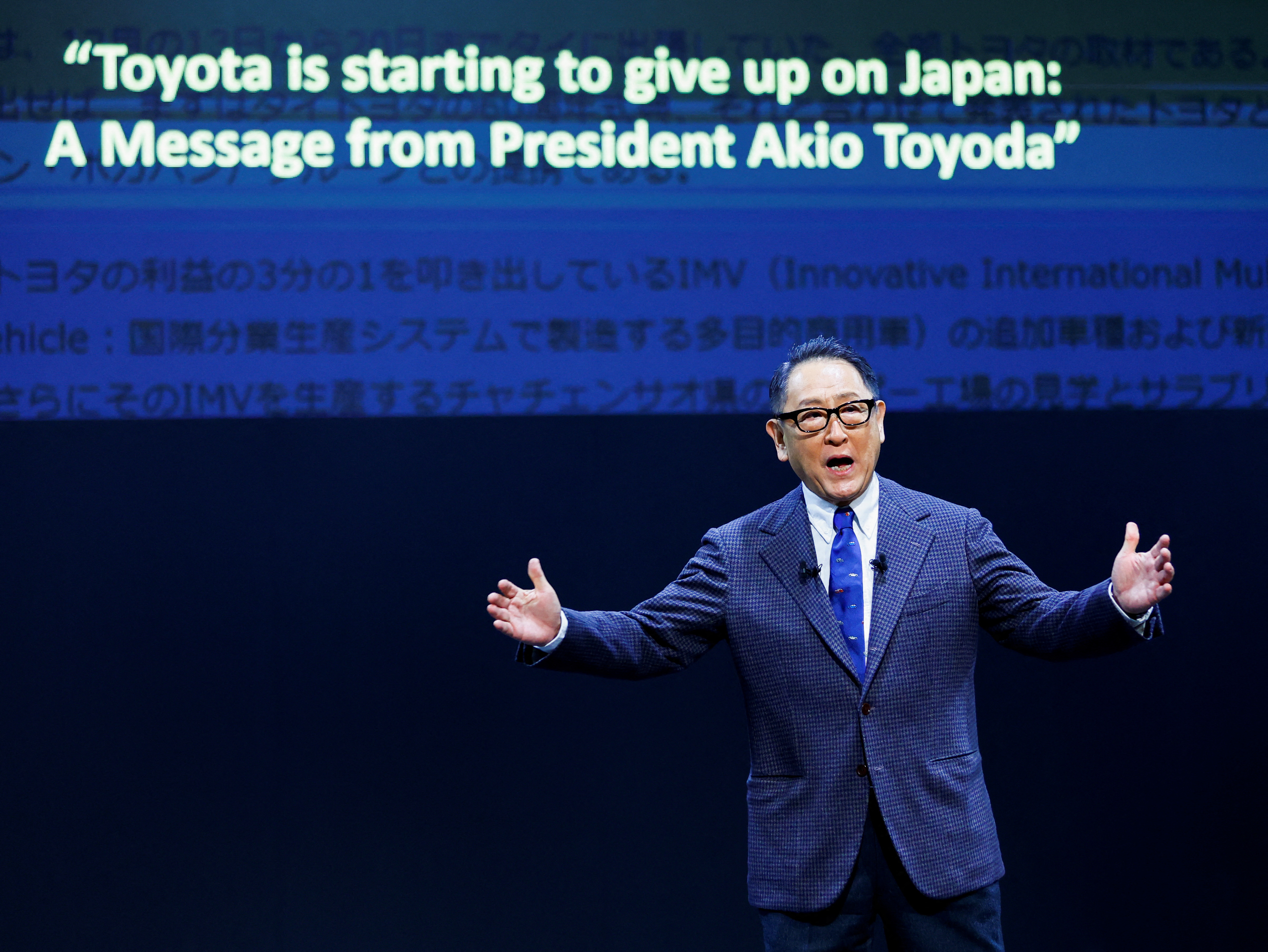Jan 26 (Reuters) – Akio Toyoda, president and chief executive of Japan’s Toyota Motor Corp (7203.T) for nearly 14 years, will resign from the top job in April to become chairman, handing over the reins to the company’s top branding officer.
Here’s a chronology of key events and milestones in Toyota’s history under Toyoda, the 66-year-old grandson of the company’s founder.
“CRISIS AFTER CRISIS”
In June 2009, Toyoda became the president of the company his grandfather Kiichiro founded in 1937, replacing Katsuaki Watanabe. Akio was the first member of Toyoda family to take the helm since 1995.
His appointment came as the then world’s most profitable and valuable automaker, worth $115 billion at the time, reported its first loss in decades, after the global financial crisis forced it to idle the many factories it had built over a decade of relentless expansion.
He pledged to steer the company out of its worst downturn in history, bring greater transparency to its sprawling corporate culture, and take the company “back to the basics” of building cars that made people happy.
Barely six months later, the company plunged into its worst quality crisis in decades. Toyota faced a firestorm of criticism over the slow response to recalling millions of cars to check for faulty accelerators in the United States.
The safety crisis, which forced Toyoda to testify before Congress in 2010, threatened Toyota’s reputation and continued success in its most profitable market.
Toyoda said on Thursday his term at the helm started with “crisis after crisis.”
In subsequent years, he had to battle disruptions caused by the 2011 earthquake and tsunami in northern Japan.
SLOW EV ADOPTION
During his more than a decade at the top, Toyoda also presided over the carmaker during a period of intense change in the auto industry and rising uncertainty about how legacy automakers such as Toyota can fend off the challenge from newer – and often nimbler – challengers such as Tesla (TSLA.O).
Toyota has said fossil fuels, not internal combustion engines, are the problem. As well as the hybrids it popularised more than two decades ago with the Prius, it also champions hydrogen technology, although that has so far not caught on the way battery-electric vehicles (BEVs) have.
Toyoda has defended its strategy and electric vehicle development plans, which have been criticized by some environmental groups and investors who want the company to move faster to adopt BEVs.
“Just like the fully autonomous cars that we were all supposed to be driving by now, BEVs are just going to take longer to become mainstream than the media would like us to believe,” Toyoda told dealers in the United States late last year.
He said at the time that “playing to win means playing with all the cards in the deck – not just a select few. So that’s our strategy and we’re sticking to it.”
Toyoda compared the automaker to a “department store” selling a variety of vehicles to customers with different needs, and said its corporate vision “is to provide freedom of mobility for all … and we don’t want to leave anyone behind.”
Its “department store” approach, however, came with a heavy cost.
Tesla netted $9,000 in net profit per vehicle in the past quarter, more than seven times the comparable figure for Toyota in the third quarter.











